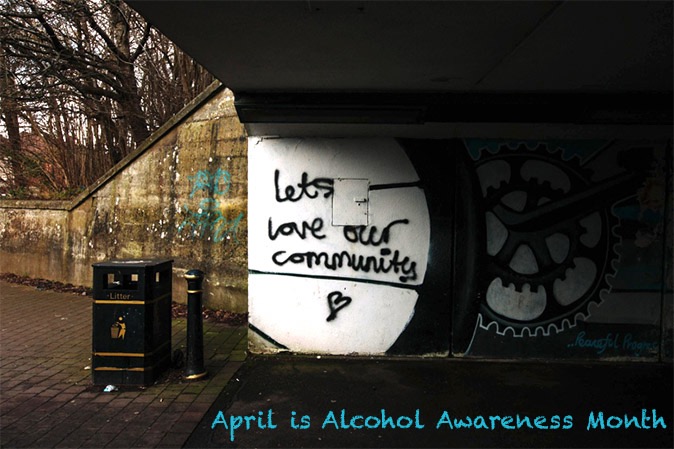
When asked what they think is the most heavily abused drug in the United States, many people choose opioids, inhalants, or stimulants. In reality, the answer is a substance that many may not categorize as a drug at all: alcohol. If this comes as a surprise to you, there’s a lot about alcohol you may not know. So let’s take a look at some alcoholism statistics and look at some facts you should know about and other facts you probably don’t know about.

3 Important (and Commonly Unknown) Alcohol Facts
1. Alcohol is a Depressant
This recreational drug is a depressant that often disguises itself as a stimulant. Many people consume alcohol to ‘loosen up’ in social situations or relax after a long day, but after enough is consumed, the depressant effects kick in resulting in a loss of coordination, impaired judgement, and irrational thinking.
So while a person may feel more at ease and upbeat after a single drink, continued consumption will greatly change their experience.
Like other depressants, alcohol has significant short and long term effects including:
- Slowed heart rate
- Lightheadedness
- Impaired motor skills
- Nausea
- Loss of consciousness
- Risk for depression
- Seizures
- Death from alcohol-related diseases and disorders
2. Alcohol Has Addictive Qualities
Similar to other addictive substances, alcohol boosts dopamine levels, which trigger the pleasure center in the brain.
Despite the negative short and long term effects caused by alcohol consumption, many people continue abusing alcohol because of the enjoyable feelings they experience.
Over time, those who consume alcohol frequently will build up a tolerance. When this occurs, more alcohol will be required to experience the same pleasurable effects, leading to dependency.
3. Alcohol Can Be Deadly
Many people understand that the effects of alcohol can vary from individual to individual. But did you know that the way your body processes alcohol is also unpredictable?
Depending on how much you’ve eaten that day, the type of alcohol you’re consuming, and how quickly you’re consuming it, many people will experience different effects.
Because of its unpredictability, alcohol consumption can be dangerous, even deadly. Drinking large amounts of alcohol can lead to slow breathing, low body temperature, and loss of consciousness.
These alarming symptoms are indicative of alcohol poisoning and put many users at risk of death. According to the CDC there are more than 95,000 alcohol deaths per year.
In addition, alcohol addiction can result in withdrawal symptoms including tremors and hallucinations. These unpleasant symptoms are a result of increased brain stimulation and can be extremely dangerous and require immediate medical attention.
Along with these immediate dangerous effects, alcohol abuse also has damaging long-term effects including:
- Unpredictable mood swings
- Inability to think clearly
- Neural injury
- Erratic heart rhythm
- Elevated blood pressure
- Fatty liver disease
- Portal vein hypertension
- Cirrhosis
- Liver failure
- Pancreatitis

5 Alcoholism Statistics People Are Surprised to Learn About
1. It Takes One Hour to Metabolize Each Serving of Alcohol
The liver is where alcohol is metabolized in the body, and it takes roughly one hour to process each serving of alcohol. This is a fairly good estimate, although men absorb alcohol at a different rate than women.
Other factors such as a person’s metabolic rate and the amount of food in their system can play a role in the speed with which alcohol is processed in the body.
2. One Drink Doesn’t Always Equal One Serving
This fact trips up many people when trying to gauge the amount of alcohol they have had to drink. Many beers contain around 5% alcohol content, yet quite a few craft and specialty beers have up to 8% alcohol and higher.
When ordering mixed drinks, every restaurant or bar has different ways of measuring a pour and some strictly adhere to one ounce per serving while others are more liberal with the amounts, and may use an ounce and a half or more.
Certain mixed cocktails also have more than one type of alcohol in the recipe and each one could contain more than one ounce. These add up quickly,so it’s important to be aware that not all drinks contain the same amount of alcohol.
3. Alcohol Can Cause Digestive Problems
Many doctors understand that alcohol can irritate the stomach and digestive system, but most regular drinkers don’t know about this concern unless they have chronic problems.
Alcohol causes the digestive system to produce more stomach acid than normal. It can also stimulate gastritis and inflammation, which in turn may lead to pain, nausea, vomiting, diarrhea, and an increased risk of cancer.
Not only does it affect the stomach, but it can also have an impact on the liver, intestines, and pancreas.
4. Alcohol Weakens the Immune System
Because alcohol disrupts the digestive system, it can cause complications with gut bacteria and the body’s microbiome. It has only recently been discovered that having healthy gut bacteria has a positive impact on a person’s mental health and immune system.
When gut bacteria is out of balance and the body produces unhealthy bacteria due to alcohol and excessive drinking, it negatively affects the body’s immunity and resistance to colds and flu.
For those beginning a treatment program, an alcohol detox program is a necessary first step to rid the body of toxins and rebalance the system.
5. Alcohol Can Raise or Lower Blood Sugar Levels and Complicate Diabetes
For people with Diabetes, alcohol consumption can be complicated. If blood sugar levels are under control, moderate drinking occasionally may increase levels to rise slightly, but drinking too much or too often usually has the opposite effect.
Beer and wine are carbohydrate heavy and often increase blood sugar levels. Alcohol can cause weight gain and might be a problem for keeping diabetes in check. Sweet, sugary drinks should usually be avoided.
It’s best to avoid alcohol as much as possible for people with diabetes and other health issues. It’s imperative for people with an alcohol dependence to seek help to avoid further complicating those health issues.

Alcohol Awareness Month
April is Alcohol Awareness Month. This initiative was established in 1987 to reduce the stigma surrounding alcohol addiction, increase understanding, and educate the public about alcohol treatment and recovery options.
By spreading awareness about alcohol addiction, we hope to prevent the misuse of alcohol and encourage those who need treatment to seek help. If you have been affected by alcohol addiction, whether firsthand or through a loved one, there are many things you can do to combat this dangerous disease.
Even though April is designated as alcohol awareness month, it’s important for those who use alcohol to drink in moderation every month and for those who might have a problem to seek help as sooner rather than later.
1. Share Your Story
Don’t underestimate the power of your personal experience! By being open about the way alcohol abuse has affected your life, you can spread awareness and reduce stigma.
In the modern world, many people turn to social media to share their story with the masses. While this is a strong platform that is sure to increase awareness, don’t forget the impact of intimate conversation. If you feel uncomfortable sharing publicly, you still have the ability to make a difference by being open with the people who are closest to you.
2. Educate and Provide Information
Even if you aren’t an expert on alcohol addiction, you still have the opportunity to spread awareness. Here are a few things you can do to educate others:
- Share informational articles on your social media channels
- Contribute a blurb about Alcohol Awareness Month on social media or in a newsletter
- Let others know about statistics regarding alcoholism and its negative impact on those who are addicted and their loved ones
3. Donate Time and Money
Do you know of an organization that is working to spread awareness about alcohol addiction? Contribute to their cause by volunteering or making a donation! Many organizations dedicated to battling substance use disorders rely on community involvement and financial aid.
No matter how much time or money you can offer, your efforts will provide help and hope to those impacted by alcohol addiction.
The team at Oro House Recovery Center encourages you to spread the word about the realities of alcohol addiction. Whether you contribute by sharing your story, providing educational information, or donating resources, you have the power to make a difference.
This April, look for Alcohol Awareness Month events in your area to connect with others and find inspiration that will help you spread awareness year round. And keep it going throughout the year, even after April is over.
Related Posts
- Fetal Alcohol Syndrome - What is It and What are the Symptoms?
Did you know that Fetal Alcohol Syndrome (FAS) is the leading cause of preventable birth…
- Alcohol Poisoning and Hangover Symptoms
Most adults who drink alcohol, either regularly or on special occasions, are likely to have…
- Effects of Alcohol on the Body and Brain
Even though alcohol consumption is widely accepted in society, there are many negative side effects…
